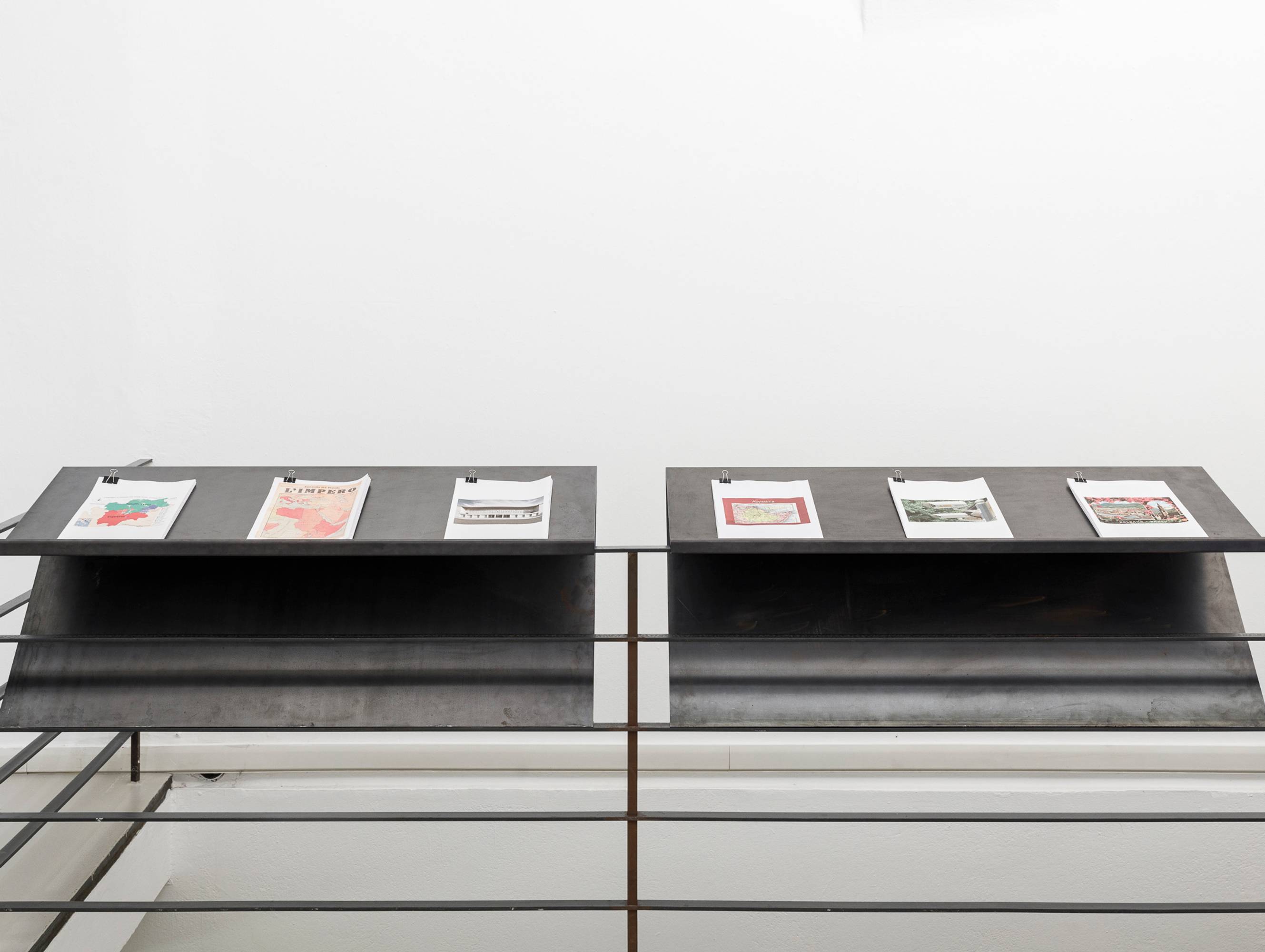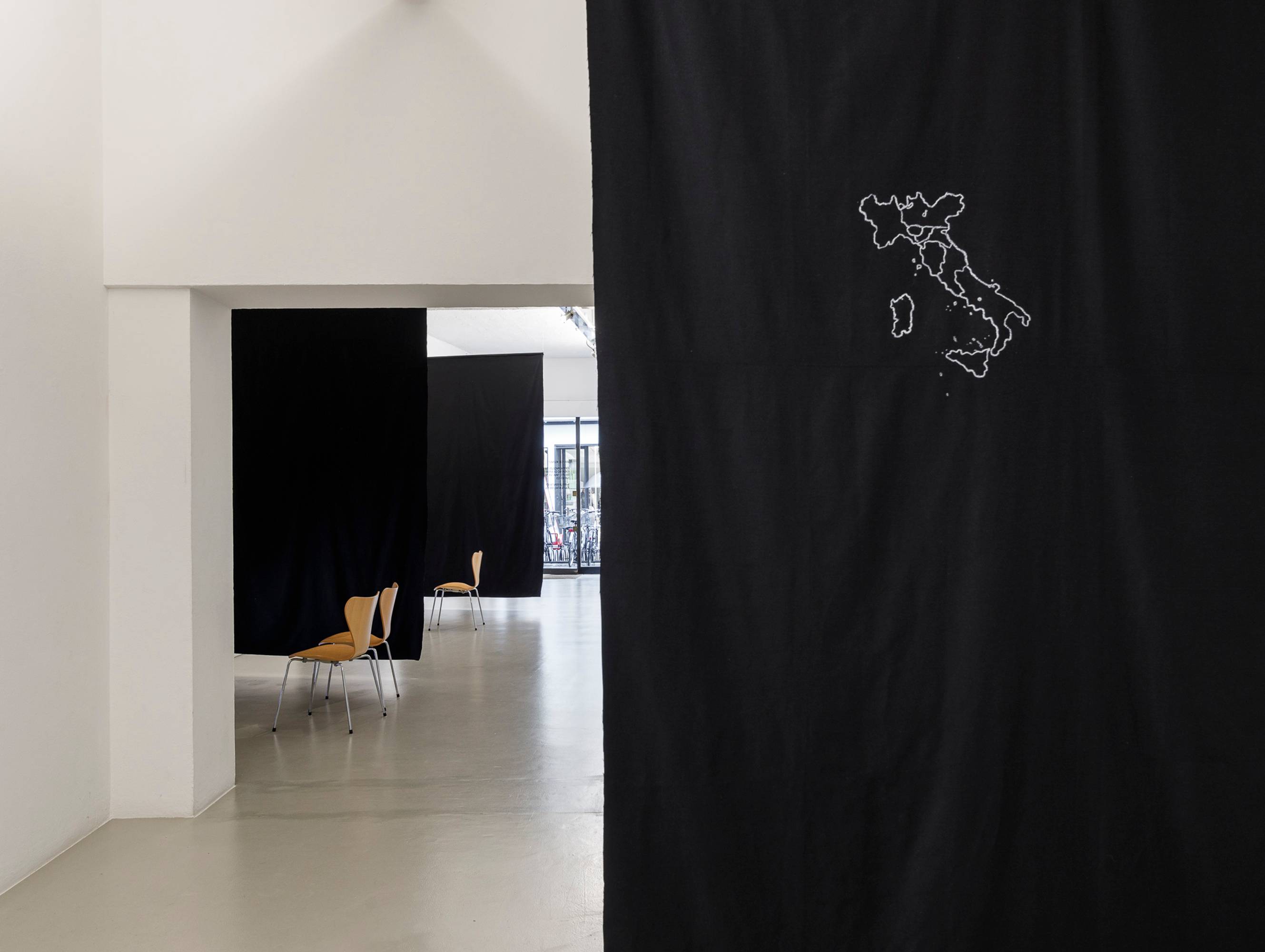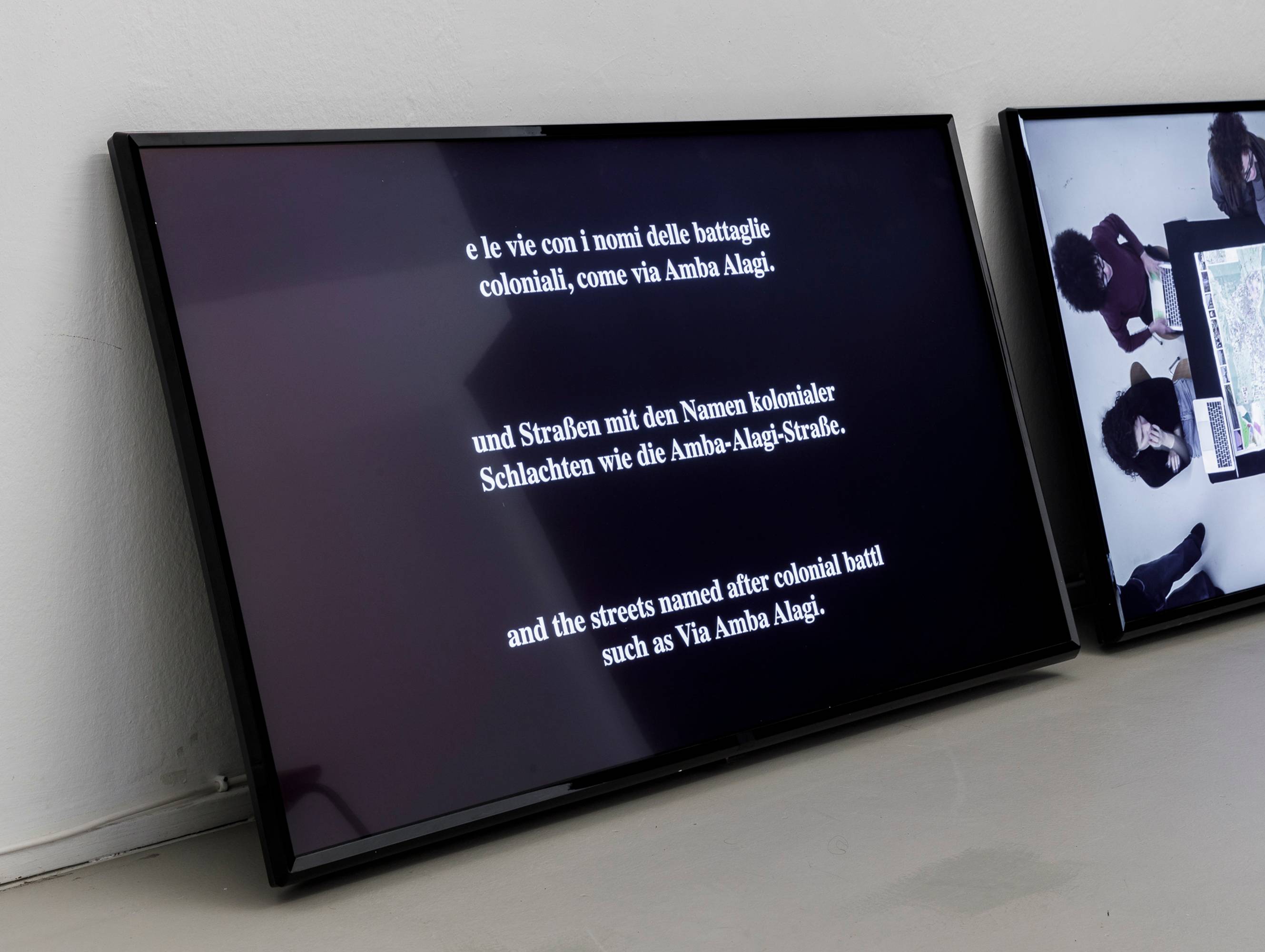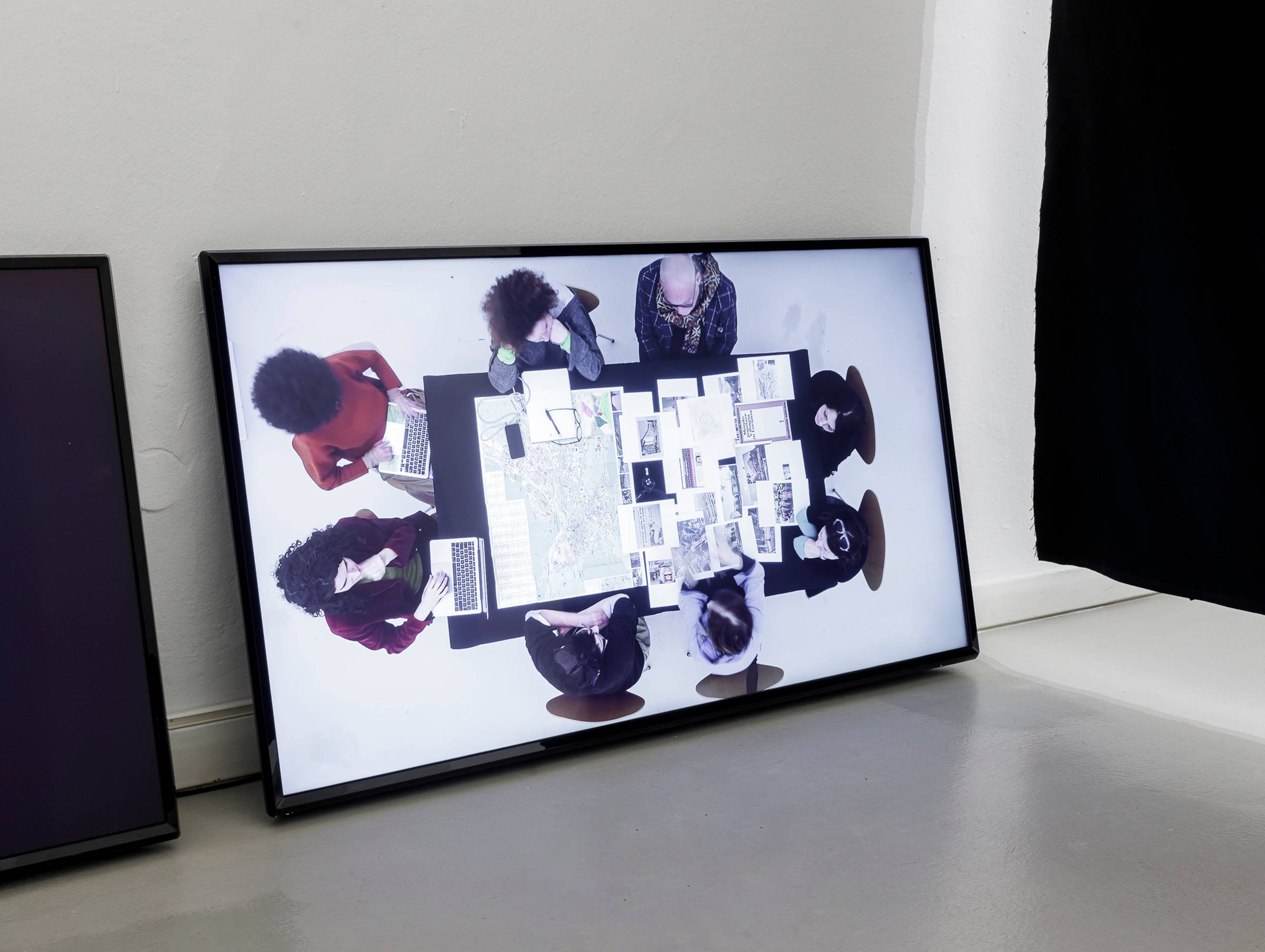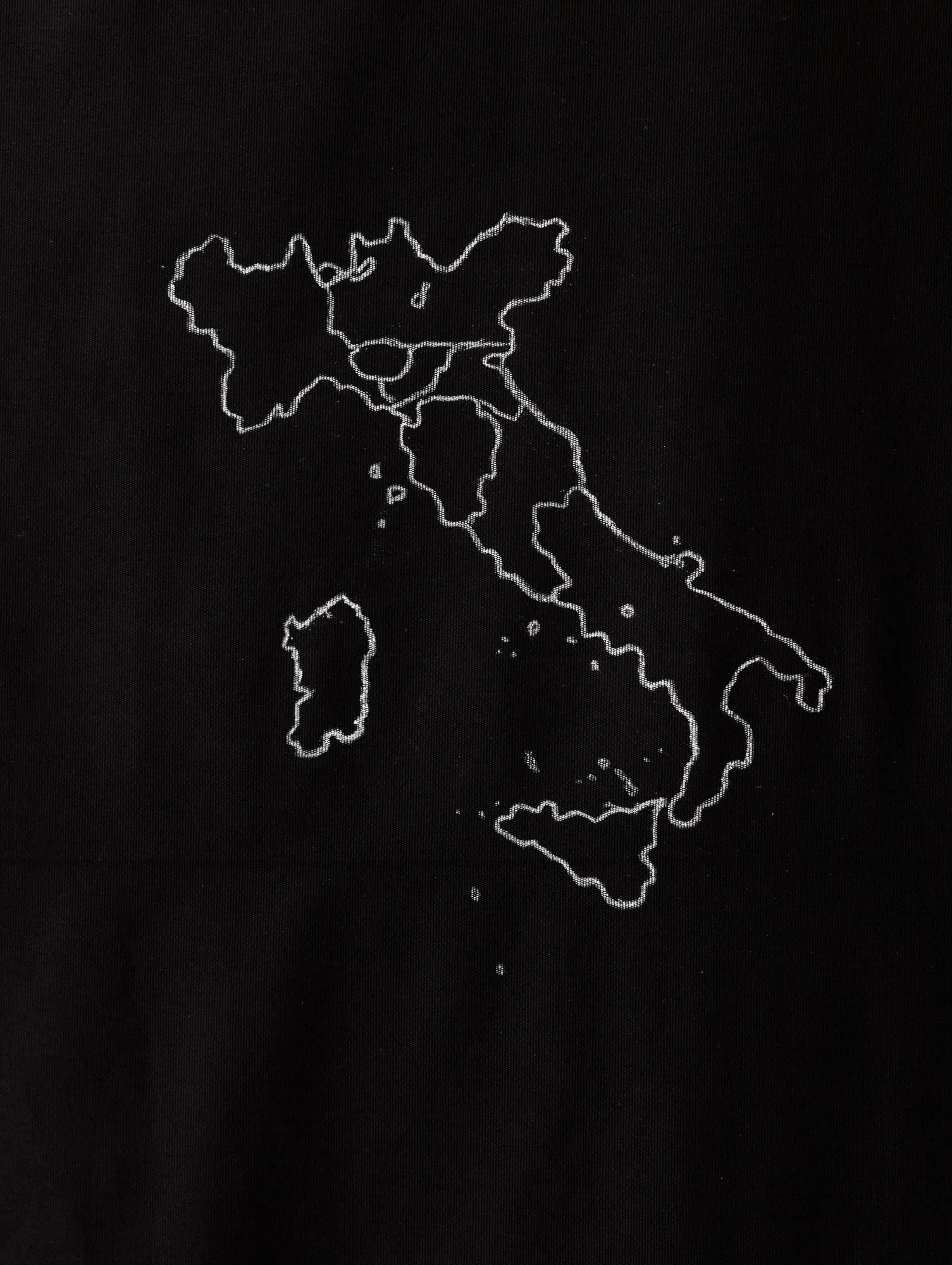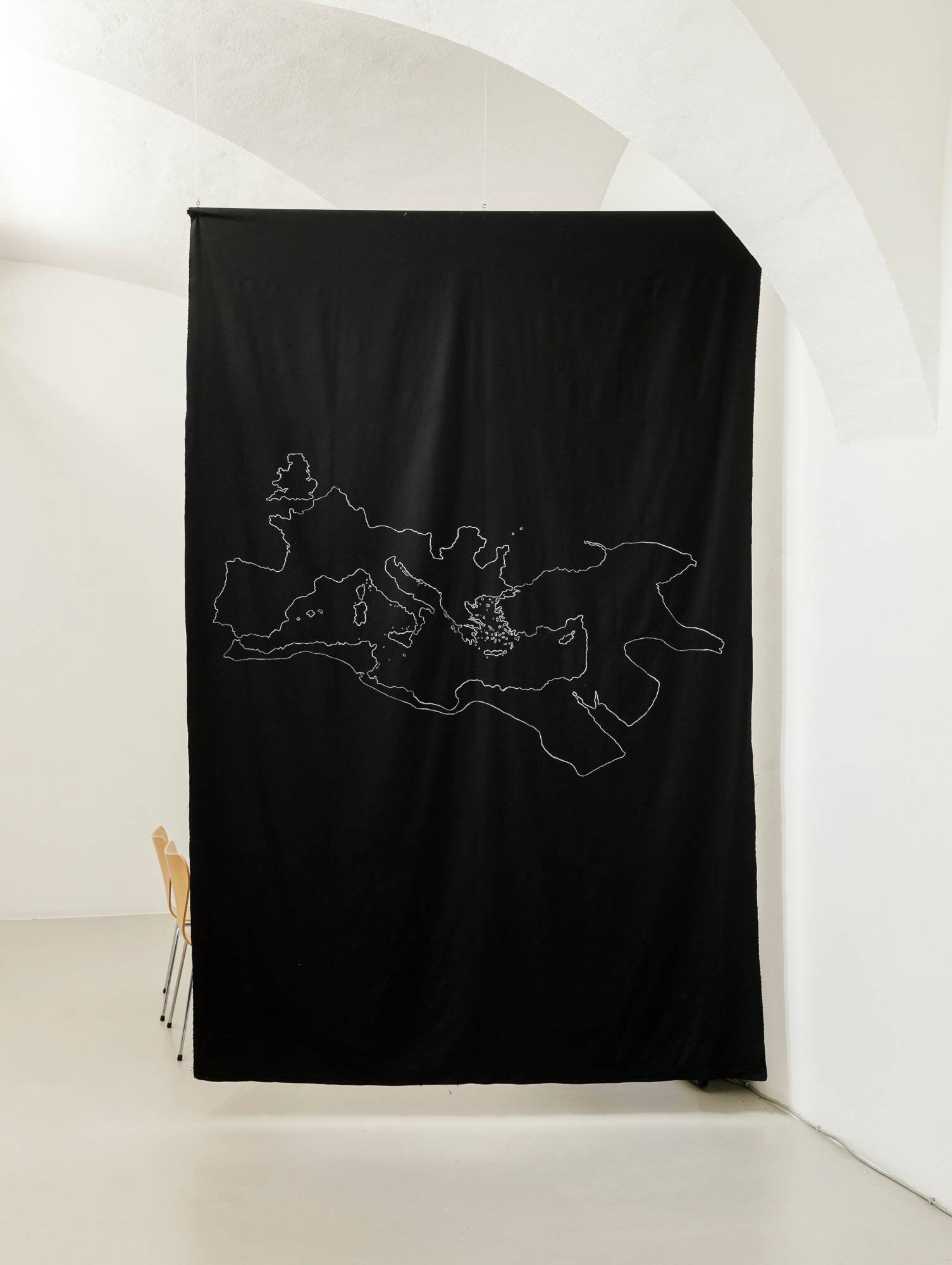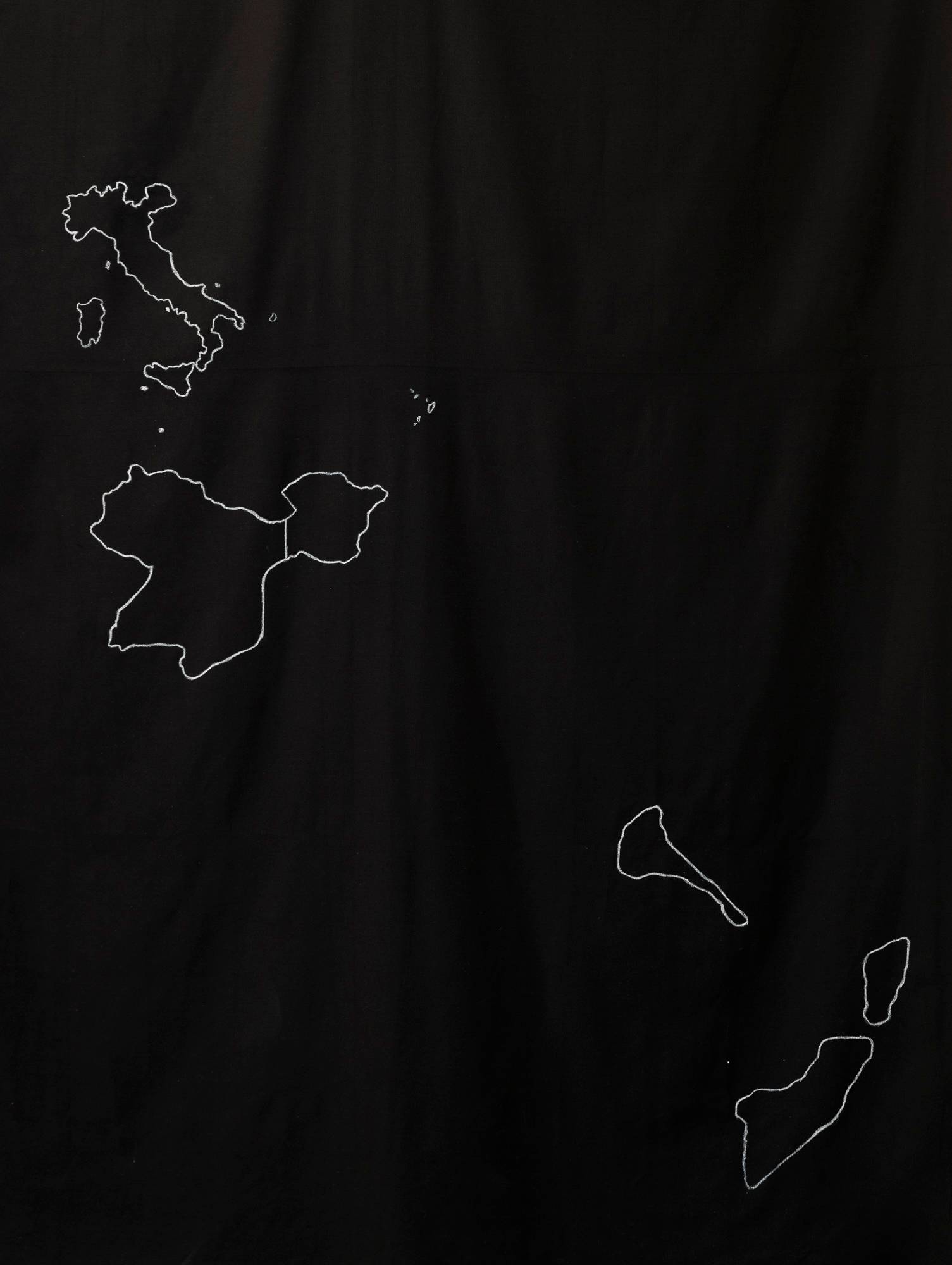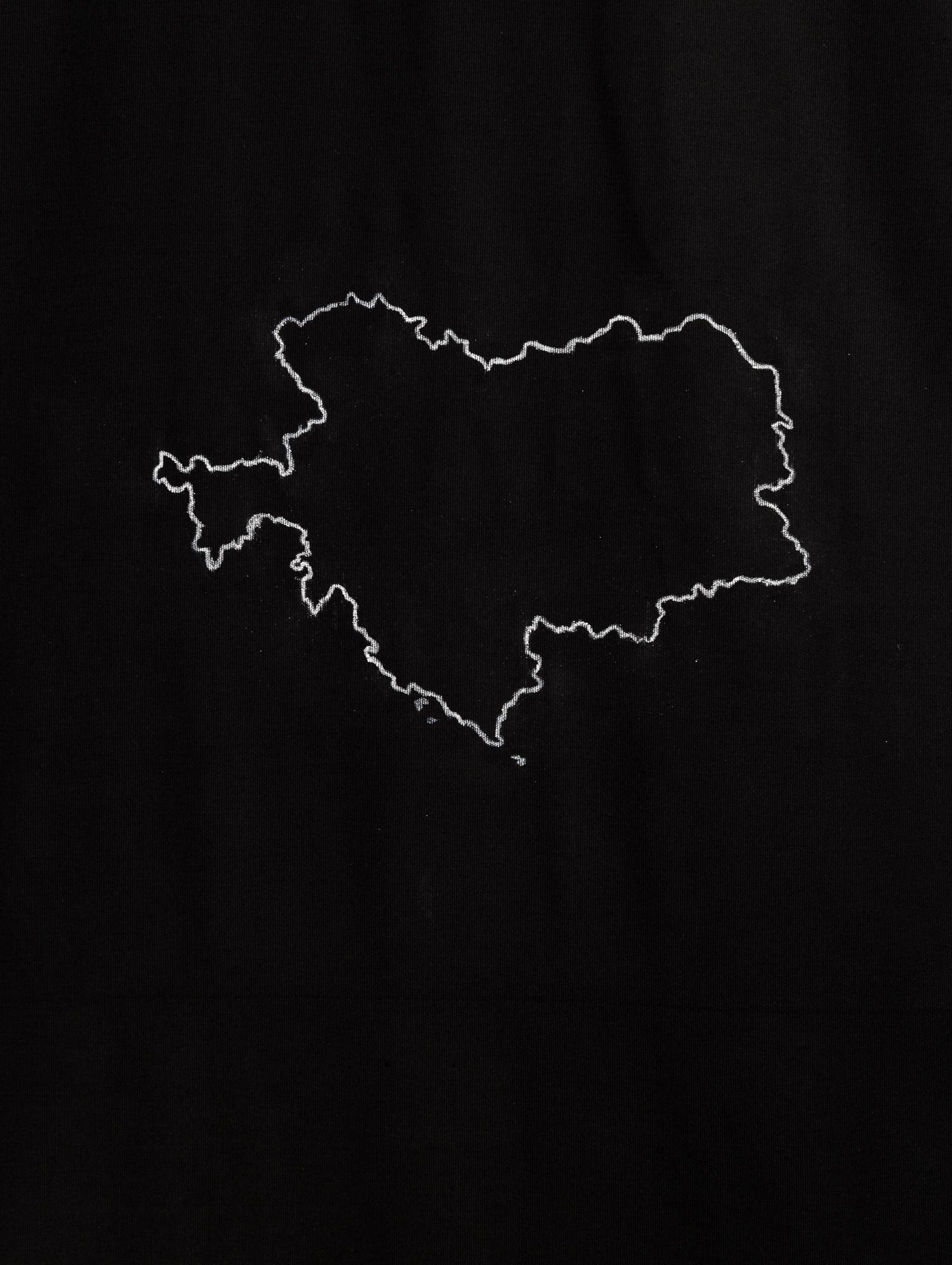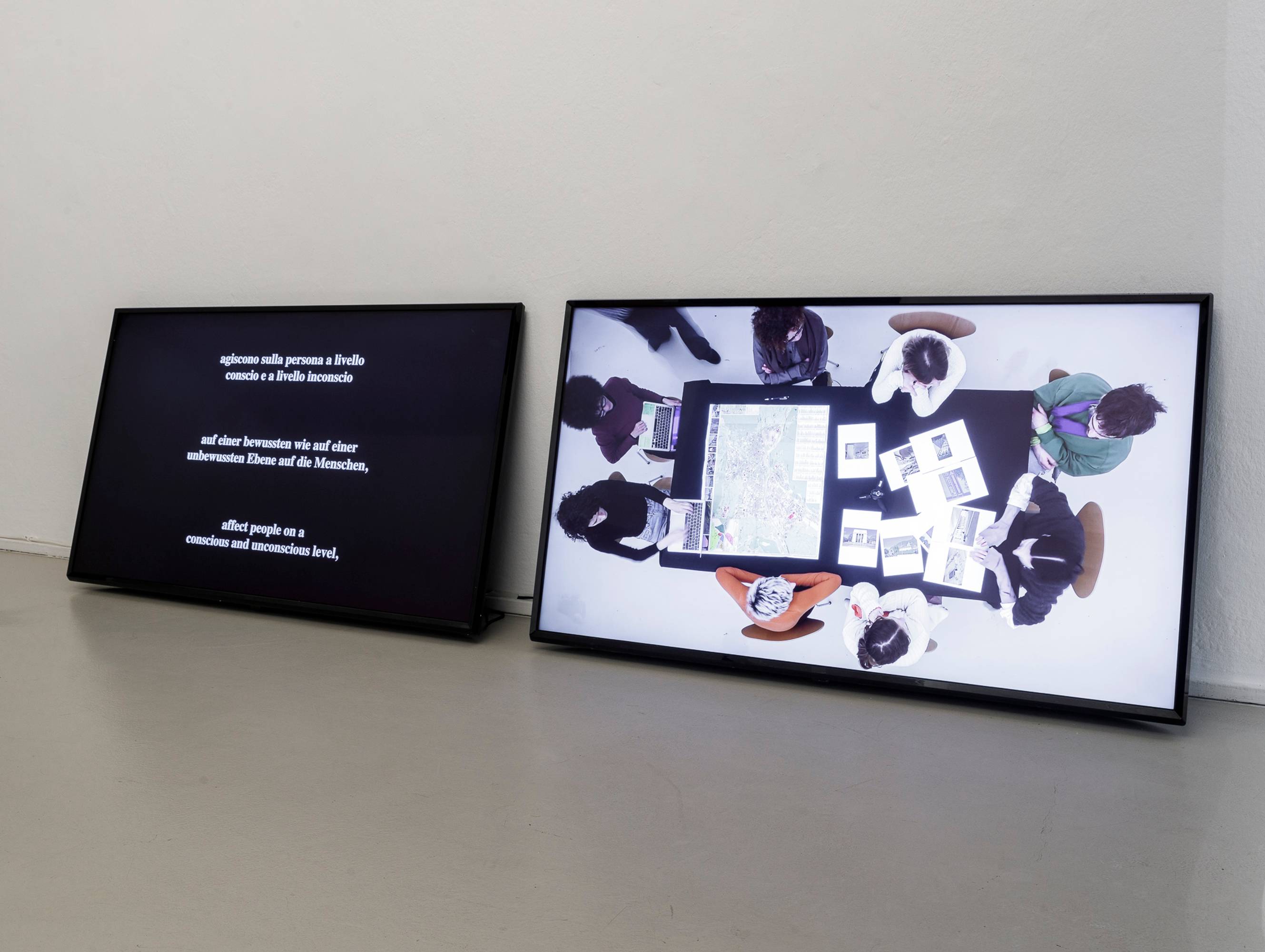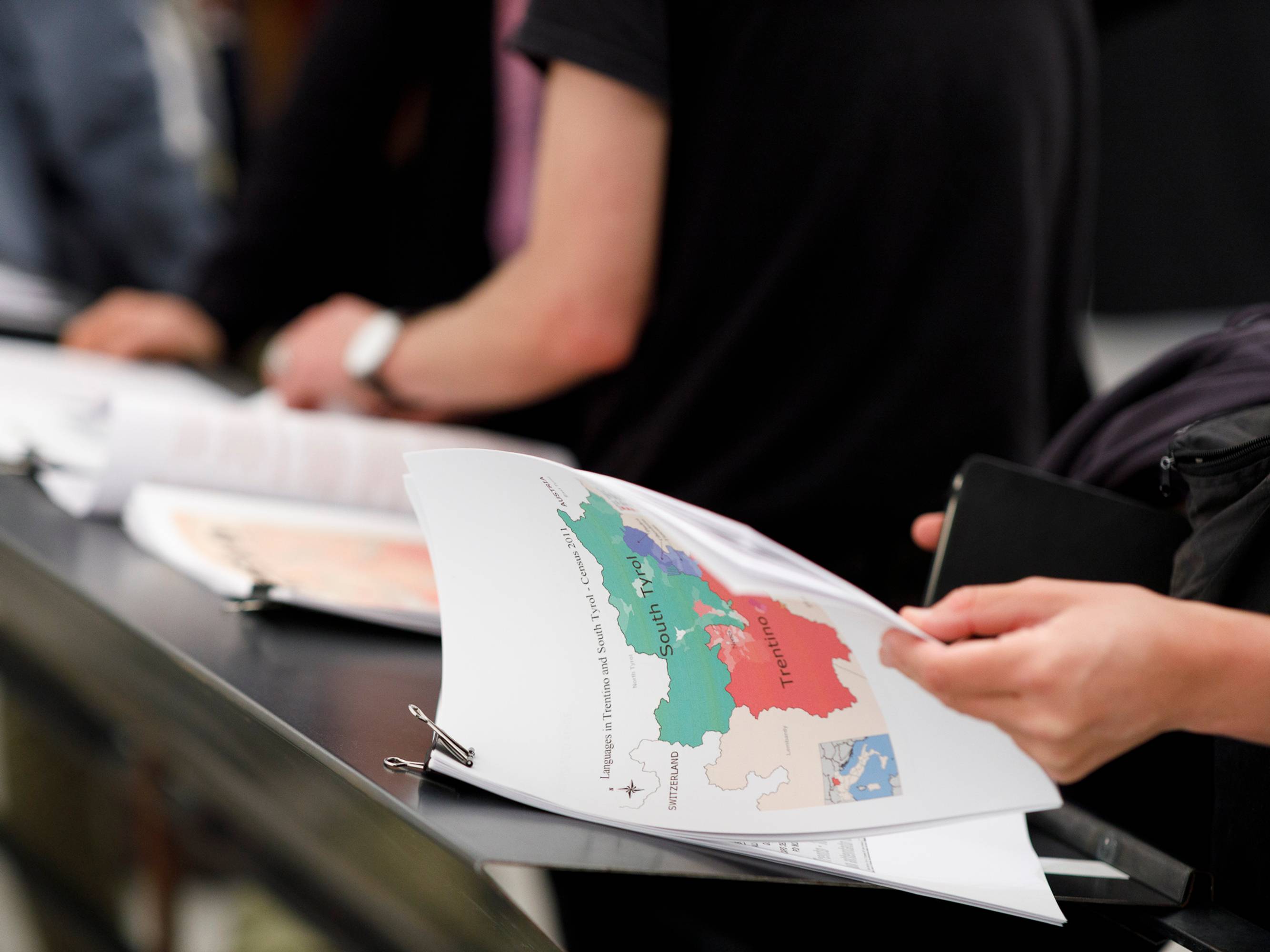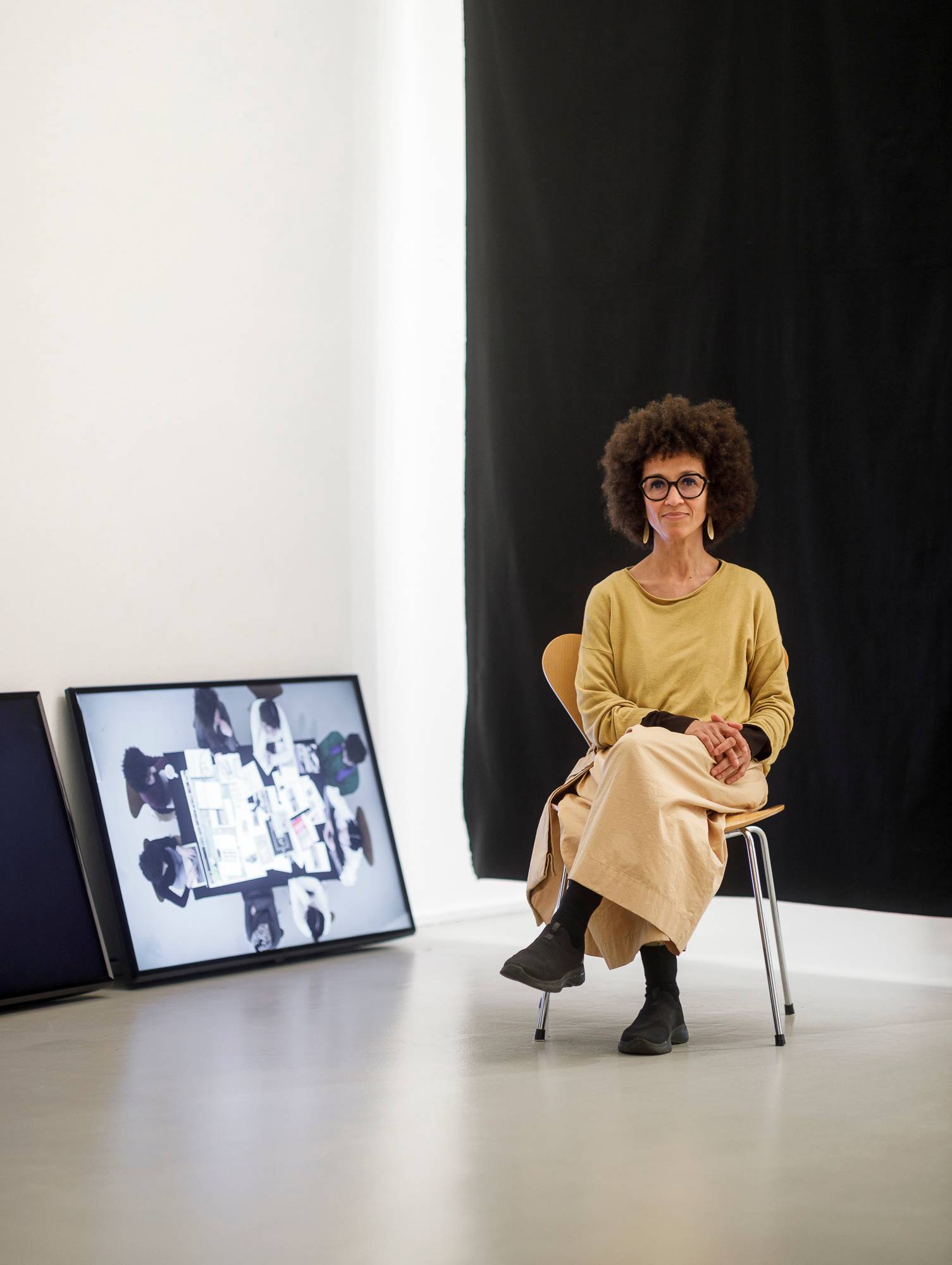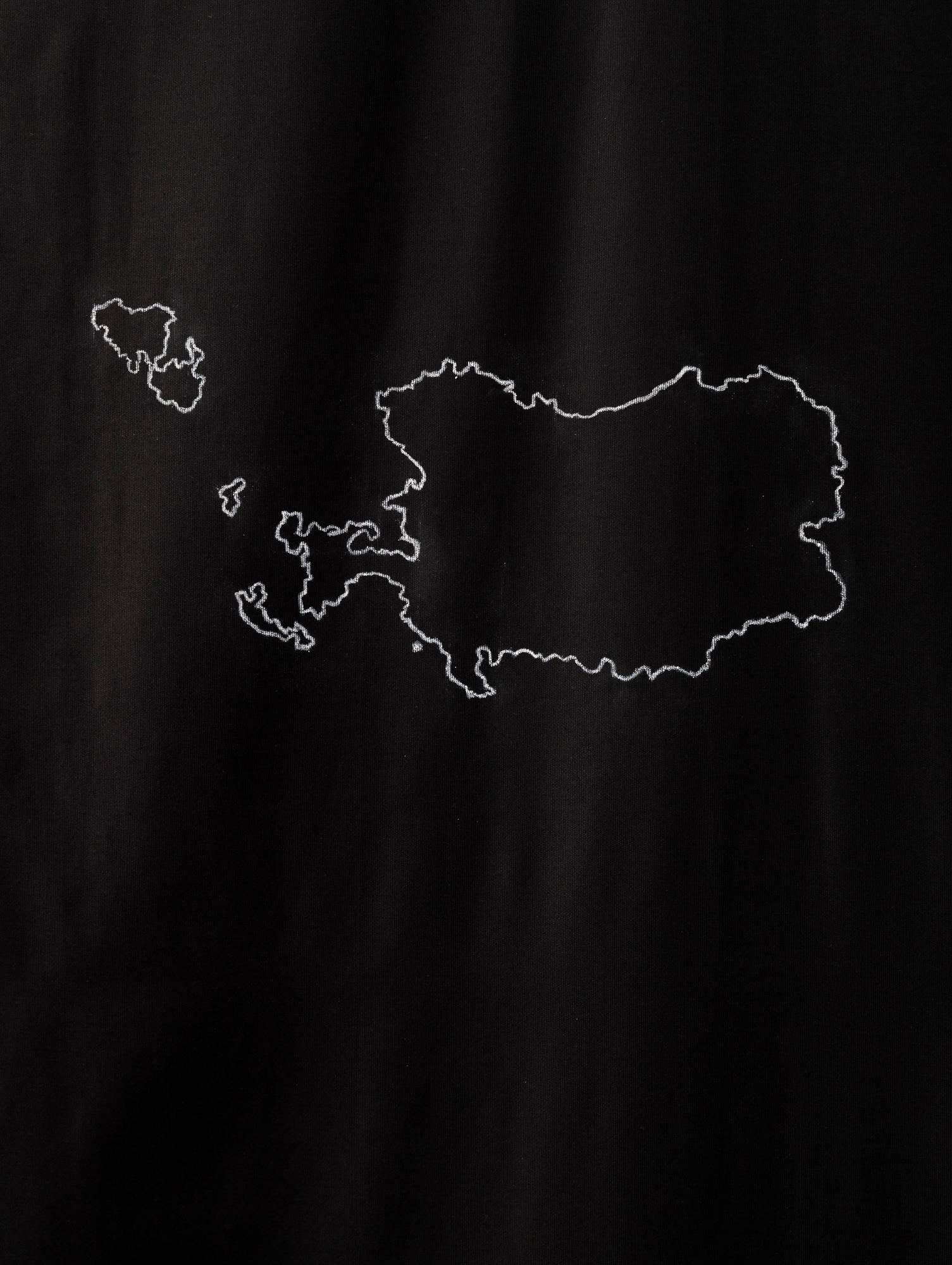Samia Henni. Psychocolonial Spaces – Act 1
Eröffnung: 23. Mai 2025 um 19 Uhr
Kuratiert von Francesca Verga und Zasha Colah
Psychocolonial Spaces - Act 1 ist ein von Samia Henni konzipiertes und realisiertes Projekt. Es entsteht im Auftrag der Ar/Ge Kunst und findet vom 24. Mai bis zum 2. August 2025 in Bozen statt. Das Projekt erkundet die Beziehungen zwischen Grenzen, Territorien und gelebten Räumen und spürt der Untersuchung Frantz Fanons zur Psychologie des Kolonialismus nach.
Wie Henni in ihrem Artikel „On Frantz Fanon and the Manichean World“ deutlich macht, der 2024 in Mousse erschien, spielte das Werk des Psychiaters, politischen Philosophen und antikolonialen Aktivisten Frantz Omar Fanon (1925–1961) eine wesentliche Rolle für die Behandlung von psychologisch-psychiatrischen Leiden des Kolonialismus und ihre Theoriebildung. Fanons Theorien sind ebenfalls relevant für die koloniale Weltordnung von heute, vor allem was die Organisation von Staaten, Eigentum und Räumen sowie die Verteilung von Ressourcen und Kapital betrifft. Einen besonderen Kernpunkt von Fanons Praxis bildete die Konzentration auf Herausforderungen der (De-)Kolonisierung auch aus einer psychologischen Warte.
Das für die Ar/Ge Kunst realisierte Projekt Psychocolonial Spaces ist die erste einer Reihe von Veranstaltungen, die in verschiedenen Städten und an unterschiedlichen Orten aktiviert werden können. Act 1 nimmt seinen Ausgang mit einer Erkundung von unsichtbaren und unsichtbar gemachten Räumen der Segregation und Entfremdung in Bozen und Umgebung: von kolonialen Spuren, Denkmälern und Straßen, von Orten, die auch heute noch eine Wirkung auf das Leben der Menschen haben. Was aber kommt einem in den Sinn, wenn man an „psycho-koloniale“ Räume denkt? In welcher Weise betreffen sie uns und wie erkennen wir sie? Wie nimmt unser Körper die Gewalt dieser Räume auf und in welcher Weise werden wir durch unsere Erziehung, Herkunft und Haltung bewogen, über diese Orte nachzudenken? Was tritt hervor, wenn man sich von binären Denk- und Organisationssystemen löst?
Über psycho-koloniale Räume zu sprechen, kann eine „Provokation“ und zugleich eine Herausforderung sein, denn sowie wir sie benennen, können wir sie uns auch vorstellen. Durch die Assoziierung der beiden Wörter „kolonial“ und „psycho“ entsteht eine persönliche und psychologische Verbindung, die sehr oft abhängig ist von der subjektiven Erfahrung, im Raum zu sein. In der Vorbereitungsphase von Psychocolonial Spaces - Act 1 wurden Studierende und Expert*innen aus der Provinz Bozen eingeladen, darüber nachzudenken, was sie heute als einen „psycho-kolonialen“ Raum wahrnehmen; welche Grade der Unterdrückung oder Befreiung erfährt der Körper im Raum und welche Räume sind das? Diese Gesprächspartner*innen trugen zur Entwicklung des finalen Projekts bei, das sich als filmisch beschreiben ließe. In der Tat hat Samia Henni einen in kleine Teile „zerlegten“ Film geschaffen, dessen semantischer Gehalt sich in der (De-)Montage erschließt, und das Ganze wieder zu einer Installation zusammengesetzt, die – anhand von Audioelementen, Texten, Zeichnungen und Videoarbeiten – alle Register der Regiearbeit zieht.
Samia Henni (1980 DZ/CH) ist Schriftstellerin, Historikerin und Ausstellungsmacherin und befasst sich mit gebauten, zerstörten und imaginierten Umgebungen sowie ihrer Beziehungen zu Praktiken der Kolonisierung, zu Kriegen und Umweltverschmutzung. Ihre jüngsten Forschungsarbeiten gipfelten in den Ausstellungen Performing Colonial Toxicity (2023–; Amsterdam, Zürich, London, Providence, Paris, Berlin, Ottawa), Housing Pharmacology (2020/21, Marseille, Paris) und Discreet Violence: Architecture and the French War in Algeria (2017–2022; Zürich, Rotterdam, Berlin, Johannesburg, Paris, Prag, Ithaca, Philadelphia), in den Büchern Colonial Toxicity: Rehearsing French Radioactive Architecture and Landscape in the Sahara (EN, 2024, 2025; FR, 2025) und Architecture of Counterrevolution: The French Army in Northern Algeria (EN, 2017, 2022; FR, 2019) sowie in den ihr herausgegebenen Bänden Deserts Are Not Empty (EN, 2022, 2025; IT, 2024) und War Zones (2018).
Teilnehmer*innen: Alessio Giordano, Anastasia Routou, Andrea Di Michele, Angelika Burtscher, Annalisa Conti, Astrid Kofler, Beatrice Harb, Camilla Corti, Carmela Nevano, Claudia Gianella, David Calas, David Hofman, Elisa Piras, Elisabetta Rattalino, Filippo Contatore, Frida Carazzato, Gabriele Di Luca, Hannes Obermair, Hans Knapp, Yasmin Khalify, Katherina Longariva, Martin Hanni, Martina Drechsel, Marzia Bona, Monika Verdorfer, Raffaele Virgadaula, Renato Sette, Roberto Gigliotti, Valentina Cramerotti und Verena Perwanger.
Dieses Projekt wird ermöglicht durch die Förderung der Schweizer Kulturstiftung Pro Helvetia.
Herzlichen Dank an: Mayyasah Akour, Carmine Auricchio, Ivan Bocchio, Melinda Bieri, Roberto Bors, Carlo Calderan, Elisa Cappellari, Andrea Conca, Filippo Contatore, Fischli Fredi, Angelika Klammer, Waltraud Kofler-Engl, Ermira Kola, David Krawitz, Christa Ladurner, Ivana Milenkovic, Dora Musola, Bright Nnadi, Olsen Niels, Angelina Radaković, Sylvie Riant, Stefano Riba, Anita Rossi, Pascal Schwaighofer, Luigi Scolari, Daniel Sommer, Ipek Türeli, David Theodore, Paul Videsott, Margot Wittig, sowie alle, die an den Workshops und der Realisierung der Ausstellung mitgewirkt haben.

